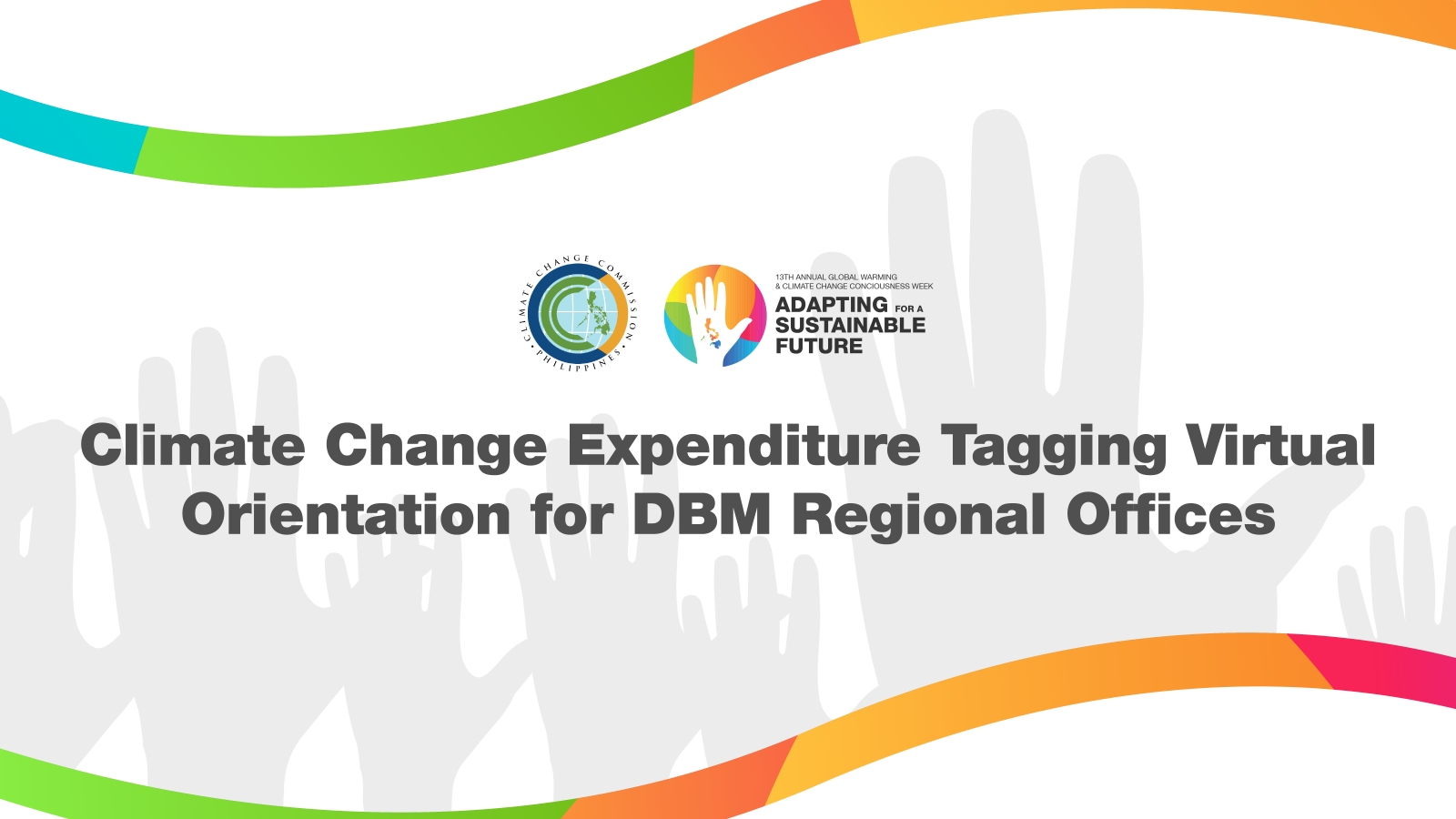
December 09, 2020 Wednesday

MANILA, 10 December 2020 — The Climate Change Commission (CCC) conducted a capacity-building session for the Department of Budget and Management (DBM) Regional Offices on the process of national and local Climate Change Expenditure Tagging (CCET) as an integral part of the annual budget preparation.
Held during the 13th Annual Global Warming and Climate Change Consciousness Week, the orientation aims to develop a better understanding of the formulation of climate actions and its linkage to the budgetary and planning process, and of the roles and responsibilities of institutions involved in managing the country’s response to climate change by identifying, designing, and tagging climate adaptation and mitigation programs, activities, and projects for inclusion in the General Appropriations Act.
DBM regional officers discussed national CCET policy, government planning and programming processes and entry points for tagging climate change-related programs, activities, and projects, including the use of Quality Assurance and Review (QAR) Form and BP201-F as prescribed under relevant DBM National Budget Memoranda; and the use of Local Climate Budget Tagging QAR and the Annual Investment Plan template as prescribed under relevant DBM Local Budget Memoranda.
Participants were guided on tagging an agency’s budget in the Online Budget Submission Portal (OBSP). Participants proposed recommendations to strengthen the CCET policy coordination at the national and sub-national level.
Earlier this year in April, the CCC and DBM delivered the annual CCET orientation via the virtual platform to ensure that national institutions are aware and compliant with the CCET requirements provided in the National Budget Preparation for FY2021 memorandum.
The CCET aims to serve as an effective basis for allocating and prioritizing government resources by generating timely statistics and baselines to evaluate the impact of climate public expenditures. It is mandated by Joint Memorandum Circular 2015-01 between the CCC and the DBM, enabling oversight for the agencies to track, tag, and analyze climate change-related expenditures.